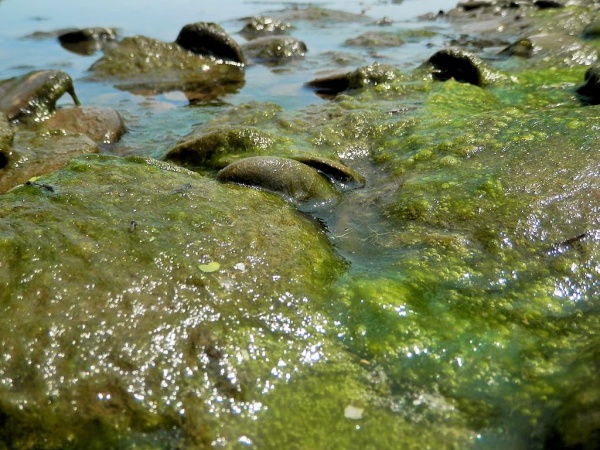Difference between revisions of "Water quality"
Jenny Hill (talk | contribs) |
Jenny Hill (talk | contribs) |
||
| Line 15: | Line 15: | ||
<h4>Phosphorous</h4> | <h4>Phosphorous</h4> | ||
<p>Plants (including algae) require three macro nutrients to grow: Nitrogen, potassium, and phosphorous. Of these three, phosphorous is the often the "growth-limiting" nutrient. i.e. the local environment may have an abundance of nitrogen and potassium, but algae won't develop unless phosphorous is available too. </p> | <p>Plants (including algae) require three macro nutrients to grow: Nitrogen, potassium, and phosphorous. Of these three, phosphorous is the often the "growth-limiting" nutrient. i.e. the local environment may have an abundance of nitrogen and potassium, but algae won't develop unless phosphorous is available too. </p> | ||
| − | <p> Major sources of man-made phosphorous in the environment include agricultural fertilizers... | + | <p> Major sources of man-made phosphorous in the environment include agricultural fertilizers...</p> |
| − | </p> | + | <p>Compost is a commonly used source of organic material in the engineered soil mixtures used in many LID. The phosphorous content of composted materials varies hugely depending upon the material used and the method of production.</p> |
| + | |||
</div> | </div> | ||
<div class="col-md-4"> | <div class="col-md-4"> | ||
Revision as of 19:02, 6 June 2017
Overview[edit]
Improvements in the quality of stormwater runoff is one of the primary benefits of low impact development strategies.
Nutrients[edit]
Phosphorous
Plants (including algae) require three macro nutrients to grow: Nitrogen, potassium, and phosphorous. Of these three, phosphorous is the often the "growth-limiting" nutrient. i.e. the local environment may have an abundance of nitrogen and potassium, but algae won't develop unless phosphorous is available too.
Major sources of man-made phosphorous in the environment include agricultural fertilizers...
Compost is a commonly used source of organic material in the engineered soil mixtures used in many LID. The phosphorous content of composted materials varies hugely depending upon the material used and the method of production.
